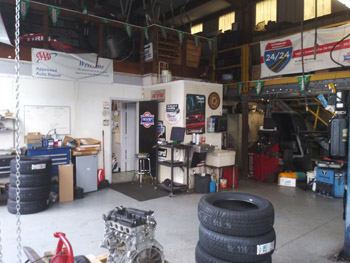All Categories
Featured
Regular engine tune-ups are necessary for keeping your automobile's efficiency, boosting gas performance, and expanding its lifespan. Whether you're an experienced cars and truck owner or a novice, recognizing the vital elements of an engine tune-up can aid you keep your auto running smoothly for several years. Here are some crucial pointers to lead you through the procedure.
- Modification the Flicker Plugs. Ignition system are tiny however magnificent parts that play a vital role in stiring up the fuel-air combination in your engine. In time, they can put on out or become fouled, causing inadequate engine performance, reduced fuel efficiency, and hard beginnings.
Throughout a tune-up, inspect your spark plugs for wear and replace them as needed. For a lot of cars, stimulate plugs ought to be changed every 30,000 to 100,000 miles, depending on the kind and material. Fresh ignition system ensure efficient combustion and smoother engine procedure.
- Inspect and Replace the Air Filter. The air filter is your engine's initial line of defense against dirt, particles, and various other contaminants. A stopped up or filthy air filter can limit air flow, triggering your engine to work harder and eat even more gas.
Inspect your air filter throughout a tune-up and replace it if it's filthy or previous its advisable service period. A clean air filter improves engine effectiveness and enhances gas economy.
- Check the Gas System. With time, your fuel system can collect dust and carbon deposits, decreasing engine efficiency and gas efficiency. Cleaning the gas injectors and gas lines during a tune-up assists keep correct gas shipment and combustion.
You can utilize a fuel system cleaner or have an expert mechanic perform a more comprehensive cleaning. This action is particularly useful for older vehicles or cars and trucks regularly driven in stop-and-go web traffic.
- Inspect the Belts and Pipes. Belts and hoses are important for numerous engine functions, such as running the alternator, water pump, and cooling. Throughout a tune-up, look for splits, fraying, or indicators of wear on these components.
Replace any damaged belts and tubes to avoid prospective malfunctions. A busted belt or dripping pipe can bring about engine getting too hot or loss of power, so addressing these problems immediately is necessary.
- Change the Engine Oil and Oil Filter. Engine oil is crucial for lubing relocating components, decreasing friction, and controling engine temperature. Over time, oil becomes polluted and loses its efficiency.
As component of a tune-up, replace the engine oil and oil filter. Use the sort of oil advised by your automobile's manufacturer and stay with the suggested adjustment intervals. Clean oil maintains your engine running smoothly and avoids premature wear.
- Examine the Battery and Charging System. A healthy and balanced battery is crucial for beginning your cars and truck and powering its electrical systems. Throughout a tune-up, inspect the battery's voltage and check the terminals for corrosion. Tidy the terminals if required and guarantee a safe connection.
In addition, examination the alternator and charging system to guarantee your battery remains billed during operation. If your battery is weak or old, think about replacing it to avoid unexpected malfunctions.
- Flush and Refill the Coolant. The cooling system manages your engine's temperature, stopping it from overheating. Old or polluted coolant can lose its effectiveness, resulting in possible engine damage.
During a tune-up, flush the old coolant and replace it with a fresh blend. Inspect the radiator, thermostat, and tubes for leakages or damage. Keeping the air conditioning system in good problem ensures your engine runs at the appropriate temperature level.

- Address Caution Lights and Uncommon Signs. Modern automobiles are outfitted with diagnostic systems that inform you to possible issues through dashboard caution lights. If your check engine light or any various other cautioning indicators are on, resolve them during your tune-up.
Additionally, pay interest to unusual signs and symptoms such as weird sounds, rough idling, or decreased gas efficiency. An expert mechanic can diagnose and fix these troubles during the tune-up procedure.
- Do Not Neglect the Exhaust System. Your automobile's exhaust system removes damaging gases from the engine and ensures correct exhausts. Check the exhaust system for leakages, rust, or damages throughout a tune-up. A faulty exhaust system can affect engine efficiency and cause ecological and safety concerns.
- Usage High-Quality Parts and Fluids. When changing parts or completing fluids throughout a tune-up, constantly opt for top notch products that satisfy your automobile's specs. Making use of substandard components or wrong liquids can negatively impact your engine's performance and long life.
Verdict: Normal Tune-Ups Are Trick to Engine Wellness. Making the effort to tune up your engine ensures it runs efficiently, conserves fuel, and decreases the risk of breakdowns. Whether you execute these tasks yourself or rely upon a relied on auto mechanic, regular tune-ups are a financial investment in your car's reliability and long life. Adhere to these suggestions, and you'll appreciate a smoother, much more reputable adventure for years ahead.
Latest Posts
Your Source for Fencing Excellence in Design and Installation
Explore Durable and Stylish Fencing Options for Every Property
Build Privacy, Security, and Style with Our Professional Fencing
More
Latest Posts
Your Source for Fencing Excellence in Design and Installation
Explore Durable and Stylish Fencing Options for Every Property
Build Privacy, Security, and Style with Our Professional Fencing
